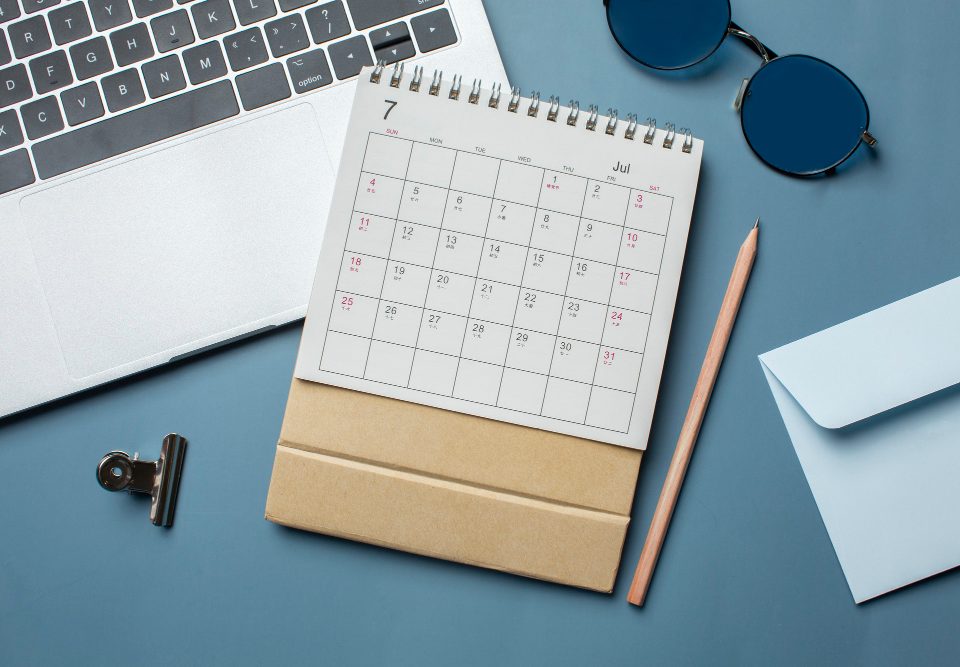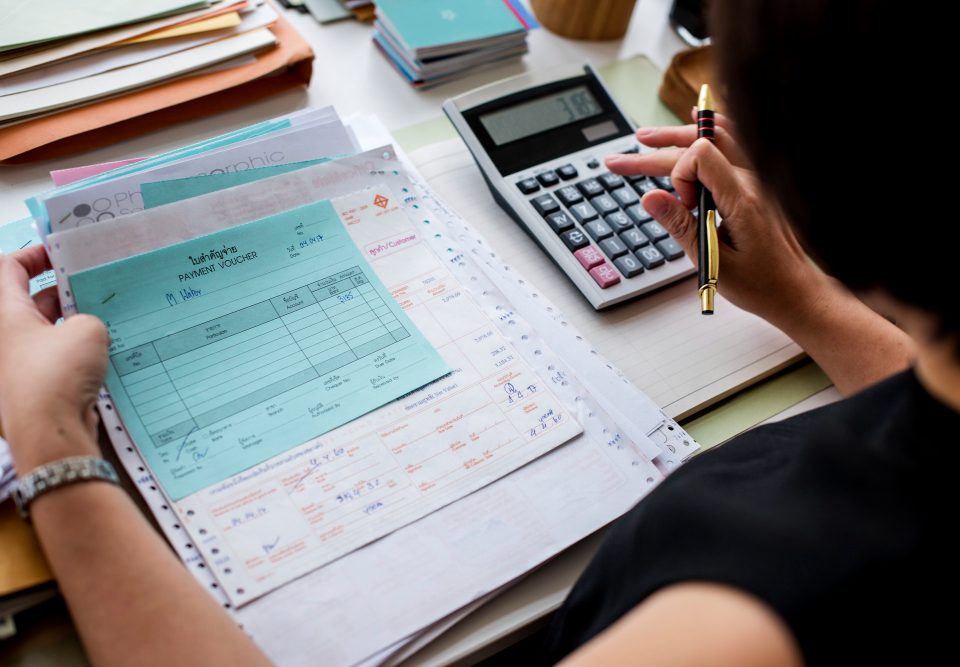Worried about falling prey to late filing and self-assessment penalties? Our top ten common mistakes guide will tell you everything you need to know about what to… and what not to do!
1. Human errors
It sounds silly, right? Yet you’d be surprised by how many people fall on this hurdle. It’s easier than you may think to write your Unique Taxpayer Reference (UTR) or National Insurance (NI) number incorrectly, especially if you’re in a hurry.
As with any important documents and paperwork, you should always be double-checking them before submission. Allowing yourself enough time to step away from your tax return and do a check with fresh eyes, for example the next day, is even better. This is why beginning the filing process ahead of the deadline is so important; you’ll be giving yourself extra time to pinpoint any potential errors.
2. Not reporting on all taxable income
People will sometimes forget to list all income sources on their self-assessment. Aside from your main income, you need to include things like income from side hustles, state benefits such as maternity leave pay, capital gains from selling assets, rental income, etc. What you have to declare on your tax form depends on individual circumstances but declaring everything is essential so that HMRC knows the overall amount you’ve earned during the tax year. From that, you’ll then be able to work out your income tax rate and which tax allowances you’re eligible for.
It’s important you declare all income sources, no matter how seemingly small or insignificant, otherwise omission could lead to penalties. To stay on top of this, you should keep records of your multiple income sources and transactions throughout the year (invoices, receipts, bank statements) and ideally have them stored separately for ease.
3. Failing to make use of tax allowances
Taxpayers sometimes forget there’s several options for lowering their tax bill in legal ways. Depending on what kind of work you do and your individual circumstances, you could be eligible to claim for certain allowable expenses. Leveraging your taxes in this way ensures you pay less tax while still remaining totally compliant. In other words, you’ll be increasing your take-home pay! Here’s a few examples of tax reliefs that might be applicable to your situation:
- Tax-deductible business expenses: You can claim back for things like office stationery and equipment, as well as bills relating directly to business premises like heating and lighting. Note that if you work from home, it’s important you only claim for the portion of bills and equipment used solely for work purposes.
- Research & Development tax: If your work involves innovative projects in technology or science, you can claim this relief while undertaking research.
- Pre-trading expenses: This is for those setting up a new business. You’ll be able to claim some initial expenses that were paid before you started officially trading.
Many allowances will actually be applied to your income automatically (e.g. Personal Allowance or Capital Gains Allowance), while others (e.g. Trading Allowance) might be omitted so it’s important to double check and speak to an accountant about the various options and which are applicable to you. Professional accountants will be able to help you optimise your tax and make sure you don’t miss out on claiming any relief.
4. Mistakes on pension contributions page
Failing to report your contributions accurately may mean you miss out on potential tax relief. As everyone’s provider is different, this does vary from person to person.
We’d suggest you always check with your pension provider before filling in this section of your tax return to make sure you have accurate details. It also won’t harm you to speak to an accountant and make sure everything is in order and calculations tally up.
5. Missing the deadline to register
Not only is this one of the most common mistakes, it’s also one of the more costly mistakes! Missing the deadline for filing self-assessments means you incur an immediate £100 penalty. You are then charged further penalties the longer it takes you to submit your tax return. The overall fee of the initial tax owed, plus fines and interest, can very quickly rack up so you’re best off just paying the penalty and submitting as soon as possible.
To make sure you file on time, it’s paramount you start the filing process early. The same goes for registration, especially because you have to wait for your UTR to come through which could take some time. Despite having registered to file in the correct timeframe, you could still end up missing the window due to file. Starting the process early will make sure you stay ahead of those deadlines.
Penalties can be appealed for a reasonable excuse, however, so chatting with an accountant to see if you can qualify is definitely a good idea if you ever find yourself in this situation.
6. Calculating incorrectly
Making mistakes only makes you human, but when it comes to tax returns, the less mistakes you make the better! That’s because even small slip-ups can cause big issues further down the line. Whether you’ve accidentally miscalculated VAT deductions or which relief applies to you, these kinds of errors have a big impact on your income tax adjustments.
To avoid human errors, it’s a good idea to use software where possible. Software can automatically calculate your tax liabilities and is a good way to triple-check your submission before it’s sent off. Better still, an accountant will be able to go over your deductions with a trained eye and easily catch any mistakes.
7. Forgetting to declare charitable donations
The way to claim for charitable donations made during the year differs depending on how much tax you pay. For higher and additional rate taxpayers, donations made via the Gift Aid scheme qualify for more tax relief.
To be able to claim this, make sure you keep a record of any Gift Aid donations made in the year so that you can include them on your tax return. You’ll also need to fill in a Gift Aid form for your chosen charity or tick a box to indicate you need Gift Aid to apply.
REMEMBER: To qualify for Gift Aid, you must have paid at least as much in Income Tax or Capital Gains Tax in that same year that you want to claim in Gift Aid in.
8. Disorganised record keeping
This is a common mistake that will have you tearing out your hair if left unattended for too long. Trust us when we say that keeping your paperwork organised throughout the year is the best way to minimise stress and overcome any late filing panics. Not only is it good practice to keep your records in order so that filing for your self-assessment is easier and quicker, it also means your receipts and evidence are on hand should HMRC ever wish for proof.
To overcome this mistake, have a tidy up of your filing cabinet and maintain neat records of your relevant financial documents. Remember, these records must be kept for a minimum of 6 years. If paper isn’t your style and you’re struggling to keep track of your documents, try opting for a digital filing cabinet. In fact, our online bookkeeping service allows you to do exactly that!
9. Not amending mistakes if identified at a later date
Some people may realise they’ve made a mistake on their tax return after it’s been sent off. The worst thing you can do is sit on this mistake and hope everything will be fine. If you know there’s an error, be proactive and correct your mistake to avoid potential fines further down the line. HMRC allows you to amend tax returns within 1 year after the filing deadline. Beyond this point, you’ll need to contact them directly to ask for assistance in amending the mistake.
Working with an accountant is the best way to spot mistakes before submission. Well-versed in tax legislation, they will be able to guide you through any changes that need to be made to your self-assessment before it’s too late.
10. Not claiming expenses
From business travel and uniform expenses to broadband and electricity bills when working from home, there’s a long list of allowable expenses you could be eligible to claim for that will reduce your tax owed. Taking advantage of this relief could make a real difference in increasing your take-home pay.
Unsure if this could apply to you? Speak to an accountant and they’ll be able to assess your individual situation with regards to eligibility for claiming expenses.
File your self-assessment with Baa
If you want to avoid these top 10 common mistakes made by self-assessment filers, why not hand your accounts over to someone reputable and expert to take care of them for you? Simply gather your financial documents and personal details, and we’ll do the rest. Check out how Baa can help you be on the way to filing on time.










